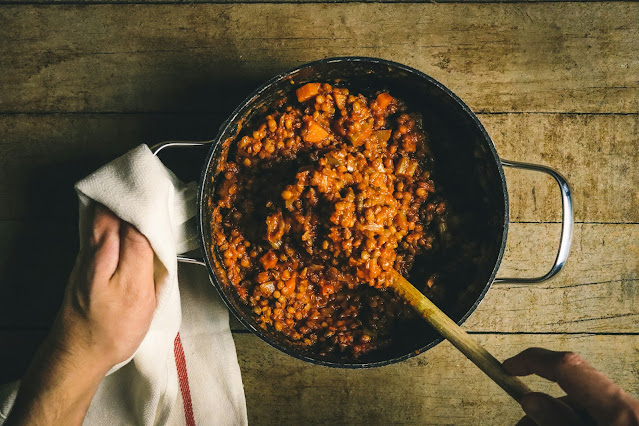 |
| Frédéric Dupont | unsplash |
Beans are a highly nutritious addition to a healthy diet, offering benefits like plant-based protein, fiber, complex carbohydrates, vitamins, and minerals. They are rich in essential amino acids, fiber for digestion and weight management, complex carbohydrates for steady energy, and a range of vitamins and minerals. Additionally, beans are low in fat and high in antioxidants, offering protection against oxidative stress.
Yet, despite its many health benefits, beans have gained a notorious reputation for causing stomach upset and digestive discomfort in some individuals.
This blog post will delve into the reasons behind why beans can be difficult for some people to digest, exploring the chemical composition and unique properties of beans that may trigger such digestive issues, offering insights that may help individuals better understand and manage these challenges when incorporating beans into their diets.
Why Beans Can Cause Stomach Upset
Beans can cause stomach upset for a few reasons:
High fiber content: Beans are high in fiber, which can be difficult for some people to digest. Consuming a large amount of fiber-rich beans can lead to bloating, gas, and stomach upset, especially in individuals who are not used to a high-fiber diet.
Complex carbohydrates: Beans contain complex carbohydrates called oligosaccharides that the human body cannot break down easily. When these carbohydrates reach the large intestine undigested, they can be fermented by gut bacteria, leading to gas production and bloating.
Antinutrients: Beans contain compounds like lectins, phytates, and tannins, which can interfere with nutrient absorption and digestion in some individuals. These antinutrients can cause gastrointestinal distress in sensitive individuals.
Sensitivity to FODMAPs: Beans are high in FODMAPs (fermentable oligosaccharides, disaccharides, monosaccharides, and polyols), which are types of carbohydrates that can trigger digestive issues like bloating, gas, and abdominal pain in some people with irritable bowel syndrome (IBS) or other digestive disorders.
Now, what are the ways to cook beans to prevent stomach hurt?
Best Ways To Cook Beans To Prevent Stomach Upset
There are several ways to cook beans that can help prevent stomach upset:
Soaking: Soaking dried beans for several hours or overnight before cooking can help to reduce the compounds that can lead to stomach upset.
Rinsing: Be sure to rinse the beans thoroughly before cooking to remove any residue that may contribute to stomach discomfort.
Boiling: Boiling beans for at least 10 minutes can help to break down complex sugars that can cause stomach upset.
Adding herbs and spices: Adding herbs and spices like bay leaves, cumin, or fennel seeds while cooking can aid in digestion and reduce the likelihood of stomach upset.
Cooking with kombu: Adding a piece of kombu (a type of seaweed) to the pot while cooking beans can also help to reduce gas and digestive issues.
Slow cooking: Cooking beans slowly over low heat can help to break down hard-to-digest compounds and make them easier on the stomach.
By using these methods, you can enjoy delicious beans without the worry of stomach upset.
